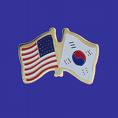Escalation in the Korean Peninsula? US and South Korea plan more war games

It was announced on Wednesday, December 1 that the U.S. and South Korea will hold more military exercises on Monday, December 6th. Earlier, South Korea and Japan practically torpedoed China’s efforts to calm the volatile situation on the Korean peninsula by calling for urgent consultations by the 6 countries involved in the talks on the Korea nuclear problem.
Washington and Tokyo have called on China to persuade North Korea not to raise the stakes, but the U.S. and South Korea are creating more problems by their joint military exercises.
Despite the deliberate irritation, China which has received Pyongyang’s agreement, has proposed the resumption of the long stalled 6-party talks, but Seoul and Tokyo have bluntly refused to go back to the negotiating table. Their refusal is evidence of a desire not to look at North Korea as an equal partner in talks – a highly destructive line to take, says Alexander Zhebin of the Russian Academy of Sciences’ Institute of the Far East.
“The strategy of the U.S. and allies to ignore North Korea has failed woefully.”
The belief that the poor health of North Korean leader, Kim Jung Il, will lead to a struggle for power, complicated by the UN anti-Pyongyang economic sanctions, including U.S., Japanese and South Korean unilateral sanctions, will trigger mass disaffection against the leadership, has evaporated. The hope for a regime change in North Korea has been dashed. North Korea has coped well with its internal problems, leaving the U.S. and its allies the daunting task of looking for a face-saving strategy.
Moscow supports China’s efforts to reduce the high tensions on the Korean peninsula, but if the efforts fail the region will again balance on a knife’s edge from December 6th, when America and South Korea are due to conduct fresh military exercises near the so-called line of separation between the North and South, unilaterally drawn by the U.S. 50 years ago. North Korea does not recognize the line. The latest exchange of heavy artillery fire by the two Koreas was because of the unresolved territorial dispute.
There is an impression that last week’s artillery exchanges were instigated behind the scene. If that is correct, North Korea can be provoked again.

